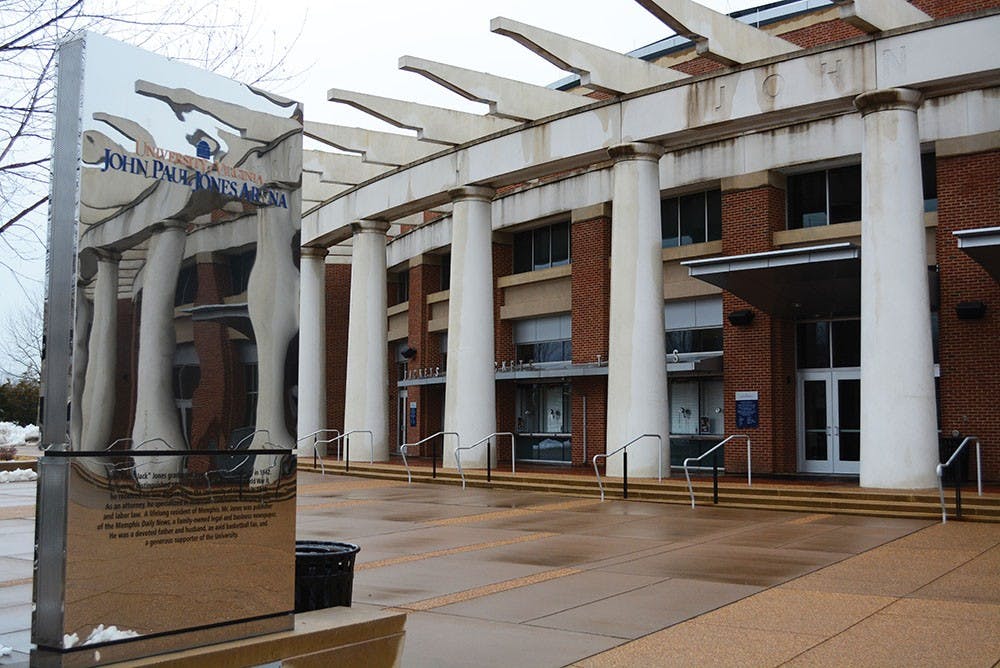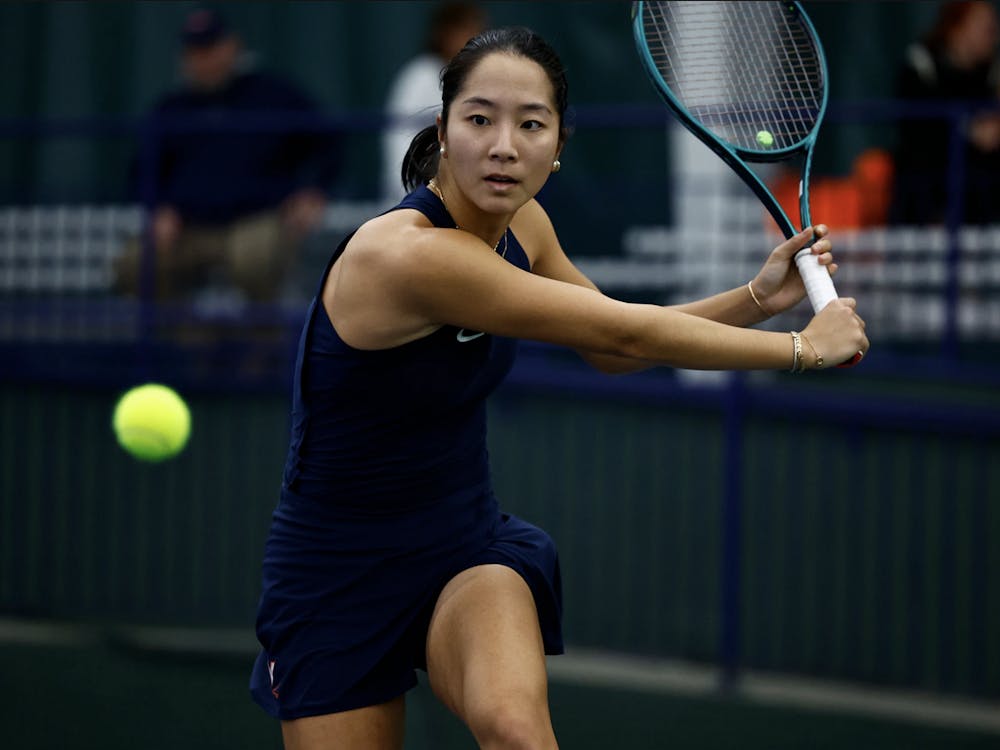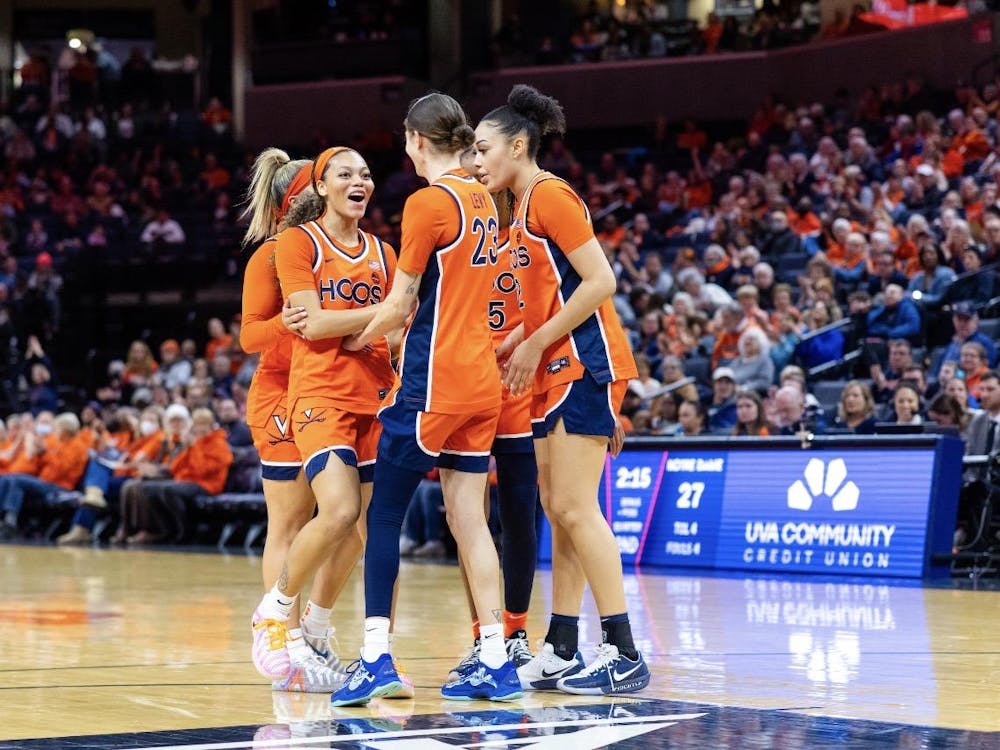This morning, student supporters of the men’s basketball team will either wake up to extreme delight or utter disappointment. Why? The lottery to select the students fortunate enough to receive one of the 2,654 tickets to the Duke and Louisville games took place in the wee hours of the morning.
I myself have been on the both ends of the ticket lottery’s inconsistencies. As second year, having attended only nine or ten of the team’s 19 home games, I still received a ticket for the game against then-No. 3 Duke. We ended up winning by five and storming the court. Last year, however, after attending nearly every home game up until that point I was not awarded a ticket for the game against then-No. 4 Syracuse.
For readers who have not recently attended Mr. Jefferson’s University, student ticketing works on a lottery system. Students accumulate “Sabre Points” by attending men’s and women’s basketball games, as well as selected non-basketball sporting events. Men’s basketball games typically give students one point, but students can earn up to four Sabre Points for other events, depending on the opponent. Then, students request tickets to men’s basketball games. If demand exceeds supply, a lottery determines who gets a ticket, with students getting one entry into the lottery per Sabre Point.
At dozens of schools across the country, men’s basketball is a defining feature of student life. This means that athletics departments must strive find an equitable way to distribute tickets, else they risk severely disappointing the program’s most enthusiastic supporters.
So is the University’s Athletics Department delivering uncompromised excellence when it comes to student ticketing? And if not, is there a better way to do things?
When it comes to University student ticketing, the upsides are apparent. The process is relatively easy to understand, takes almost no time out of students’ schedules, rewards those who have a greater history of supporting Virginia Athletics and is absolutely free. The biggest downside: leaving something so important to many students up to chance.
Outside the University, perhaps the most famous example of a student ticketing system in the entire country is Krzyzewskiville at Duke. We’ve all heard stories of students camping out in front of Cameron Indoor for weeks, trying to get that elusive seat for the Carolina game. The students that get in are the ones who are the most dedicated to the cause — the ones who freeze their asses off for weeks on a quad with allegedly awful WiFi. Despite the discomfort, for hard-core basketball fans the experience looks like loads of fun!
But could Krzyzewskiville ever become a reality at U.Va.?
That’s a trick question actually. Until the 2004-05 season, we had a ticketing system that facilitated camping. Presumably we called it Hooville, but if we didn’t, we missed a huge opportunity. Athletics had a problem with it, according to Athletics Department spokesperson Todd Goodale.
“When student entry was done on a first come, first served basis for games at University Hall, student seats for high-profile games (such as Duke and North Carolina) often went unused because students decided against standing in long lines,” he said.
Schools actually have a wide variety of student ticket distribution methods. I looked into the policies of several ACC schools and found that those methods generally break down into one of three categories: a line, a for-purchase student season ticket, or a lottery.
Krzyzewskiville is essentially a glorified line. Students are let into Cameron Indoor an hour and a half before game time, starting to form the line a few weeks in advance — at least for the North Carolina game. Most Duke home games, however, will only see lines start several hours in advance.
Other schools — such as Florida State — set up lines in front of ticket windows rather than stadium doors, which appears preferable. At Duke, students could be standing in line at the door for a dozen hours and still be denied entry if the arena fills up.
The worst part about the line method is clearly the time consuming nature of it. Students spending hours in a line when they should be being students is a huge waste of time from a productivity standpoint. Additionally, Goodale said lines can discourage fans and leave stadiums empty. I don’t doubt, however, that it is a great way for the biggest fans to prove their loyalties.
Many of the biggest college basketball programs in the country require students to purchase student season tickets — always at a discount from normal season ticket prices. Syracuse, Louisville, Virginia Tech and Boston College are a few examples from the ACC, with prices as low as $84 for the season at Tech and as much as $199 at Syracuse.
The season tickets system has the advantage of preventing those students that don’t value games as much from getting tickets. At the University, there is always the chance that casual fans get tickets when die-hards don’t, which — in my experience — is extremely frustrating. Paying for a season ticket helps to weed out many of those casual fans.
But two problems come to mind with the season ticket system. First, it creates a sizable barrier for lower-income students to go to games, and second, it tends to leave many empty seats.
That first problem is self-explanatory, and if you believe any student should be able to attend their school’s games regardless of economic background, the season ticket model becomes unpalatable. The second problem arises as some students inevitably buy the season tickets with intentions of only going to the biggest games. Even the bigger fans will, from time-to-time, have conflicts that cause them to miss games, and if tickets are tied to a student ID card, there will be no one to fill the seat. Alternatively, if the tickets are not tied to an ID card, student seats would quickly be sold for large profits.
Louisville gets around that second problem by overselling season tickets and requiring purchasers to claim their tickets for each individual game. While this is a good way around the empty seat problem, I would imagine the only thing worse than not getting a ticket to the Louisville-Kentucky game would be not getting a ticket to the Louisville-Kentucky game after paying for it.
The University Athletics Department embraces the third alternative — the lottery method. North Carolina’s system is similar to ours, wherein students who have accumulated points by attending various athletic events get preferential seating with more points, however with one interesting caveat. The 150 students with the most points entering each lottery automatically get a ticket.
So which system works best? The answer to that really depends on your values. Should men’s basketball games be accessible to all students, or only the ones who are consistently attending athletic events? Should students have to pay to watch some of the most thrilling competition in all the country, or is enjoying one’s classmates compete against other schools something that should be free to all students? Is it a disservice to a school’s academic reputation to foster a system where students waste hours on end in a line?
While I’m not sure where I come down on all those questions, I will say one thing. If a student wants to go to specific men’s basketball game and sit with their fellow students badly enough, a ticket should be guaranteed rather than be left up to chance. Sure, that may mean having to attend 30-some fall athletics events, or waiting in line for few days. But where there is a will, there ought to be a way.
In my mind, the University ticketing system is almost perfect. However, it could use one last provision to once and for all prevent the biggest fans from missing out on the biggest games.







